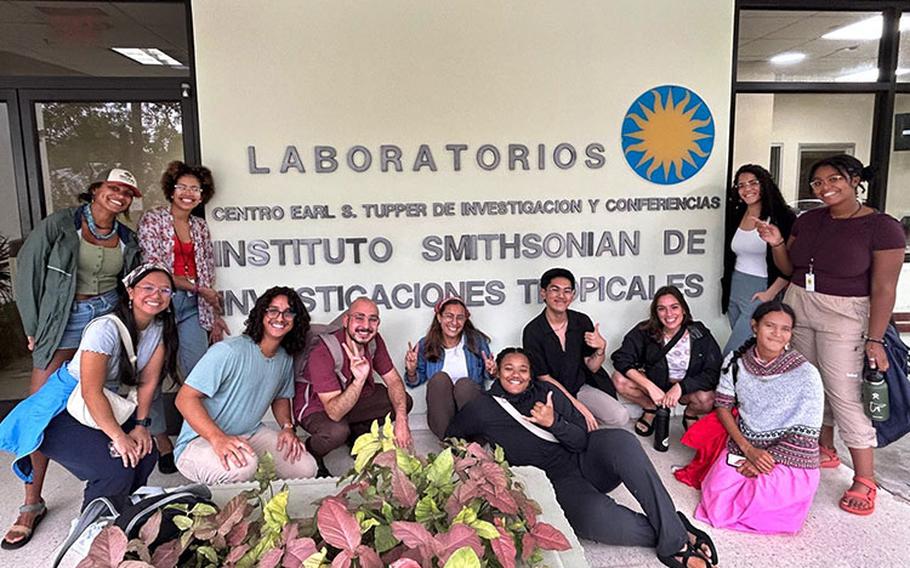Education
UOG alumna begins year-long fellowship with Smithsonian Bat Lab in Panama
University of Guam December 27, 2023

University of Guam alumna Heather Jingco, front row left, in October with the first RaMP-UP cohort of fellows under the Global Sustainability Scholars program of the University of Colorado Boulder and the Smithsonian Tropical Research Institute in Panama. Photos courtesy of Heather Jingco ()
A former president of the University of Guam Biology Club and a former Doris Duke Conservation Scholar has made her way to the tropical forests of Panama, where she is conducting a year-long study on bats under the mentorship of a Smithsonian research scientist.
Heather Jingco, a ’22 B.S. Biology – Integrative Biology alumna under the UOG College of Natural & Applied Sciences, is in the first-ever group of scholars selected for RaMP-UP — a paid one-year fellowship offered by the Global Sustainability Scholars program of the University of Colorado Boulder and the Smithsonian Tropical Research Institute in Panama. It aims to nurture scholars from underrepresented backgrounds in STEM fields to eventual research careers focused on tropical biodiversity.
Her cohort, which began in October, includes 12 scholars from around the United States and its territories.
“Being a part of a cohort of young scientists with diverse backgrounds yet on the same journey for the next year is impactful knowing that we share the same goals for the future of science,” Jingco said.
With an interest in behavioral research and tropical ecosystems, Jingco was placed under the Smithsonian Bat Lab with Dr. Rachel Page as her main mentor. Their goal is to find out if light pollution is affecting the feeding habits of the Carollia perspicillata, known as Seba’s short-tailed bat, and if artificial light has any effect on their foraging. She says their findings could have implications on the flexibility and resiliency of these bats in their increasingly urbanized habitat.
A desire to nurture a deeper connection with nature
The fellowship is a steppingstone that Jingco said she hopes to eventually apply to the many needed conservation efforts in Guam and the Mariana Islands. Her plans include pursuing a graduate degree and then working throughout the Marianas, staying close to her roots.
“My goal for the next year is to develop practical research skills and learn how research is structured within a tropical ecological context and to bring that knowledge back home with the goal of eventual application,” she said.
Jingco encourages UOG students interested in conservation and biodiversity to apply to next year’s RaMP-UP program. The program is now accepting applications for its 2024 cohort until April 28, 2024, at the website.
“I hope that this opportunity I’ve been lucky to take part in will inspire other islanders to dream big, develop their skills, and pay it back to our community and our islands,” she said.